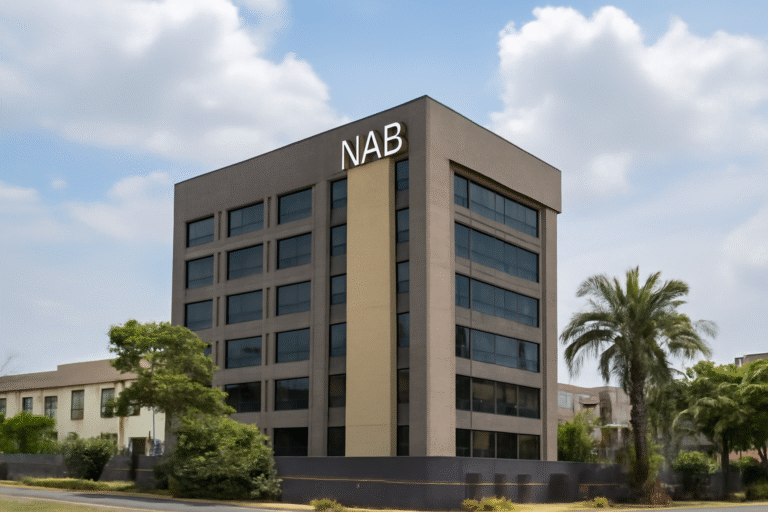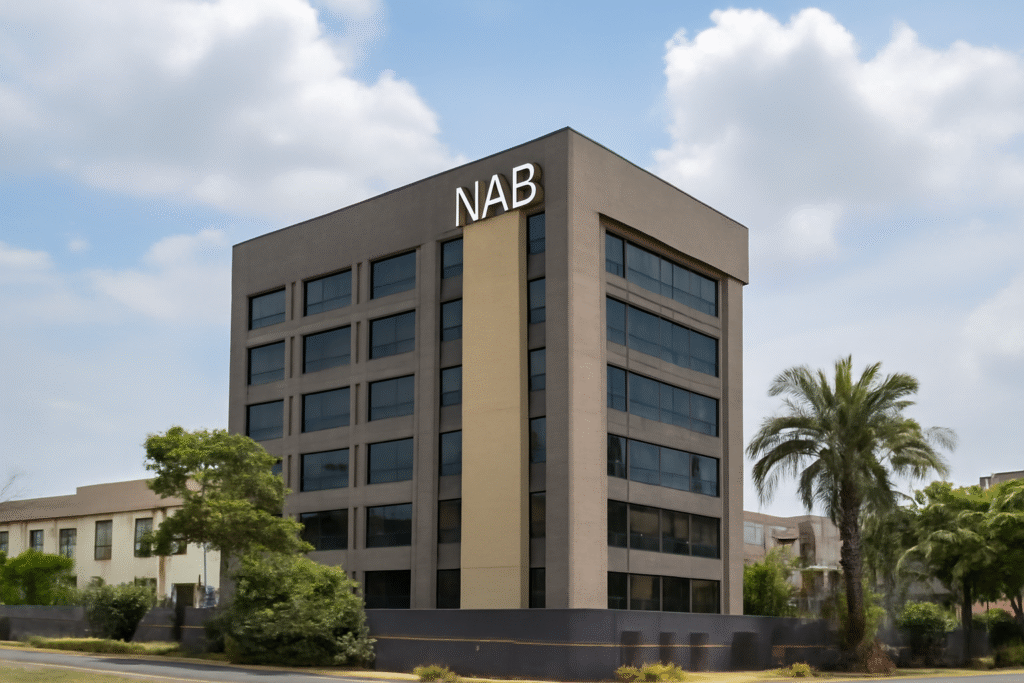Message from the CEO
At NAB Group, we recognize that our responsibility extends beyond business success—we are committed to shaping a more sustainable, inclusive, and resilient future. Climate change poses urgent challenges, but it also presents opportunities to innovate, collaborate, and lead transformative change.
In 2025, we have accelerated our sustainability efforts, aligning our business strategy with global climate goals and empowering our partners, clients, and communities to join us on this journey. This report highlights our progress, commitments, and vision for a sustainable future.
Naji Elali
Chief Executive Officer, NAB Group
Our Commitment to Sustainability
Our sustainability framework is anchored in three pillars:
• Environmental Stewardship
• Social Responsibility
• Governance and Accountability (ESG)
We continue to embed these principles across our operations, services, and partnerships to ensure that sustainability remains central to our purpose and growth.

2025 Highlights and Achievements
• 30% Reduction in Carbon Emissions: Achieved through energy efficiency programs, renewable energy adoption, and smarter resource management across our facilities and operations.
• 80% Waste Diversion Rate: Enhanced recycling, reduced material consumption, and transitioned to circular business models in key service areas.
• 20% Increase in Supplier Diversity: Expanded partnerships with minority- and women-owned businesses, ensuring a more equitable and resilient supply chain.
• Green Building Initiatives: Certified 5 additional facilities under LEED standards and introduced sustainability guidelines for all new infrastructure projects.
Our Climate Action Strategy
As part of our Climate Action Roadmap, we have set ambitious targets:
• Net-Zero Emissions by 2040
• 100% Renewable Energy Sourcing by 2030
• Science-Based Targets (SBTi) Alignment: Our emission reduction goals are validated in line with global climate science.
Key Areas of Focus
• Energy Transition: We are shifting toward renewable energy and low-carbon technologies in our operations and advising clients on decarbonization pathways.
• Climate Risk Assessment: Integrated climate risk into our enterprise risk management framework, identifying and mitigating potential impacts on operations and investments.
• Innovation and Technology: Leveraging AI, IoT, and data analytics to track emissions, optimize energy use, and create sustainable solutions for our clients.
Empowering People and Communities
Sustainability is as much about people as it is about the planet. We continue to foster inclusive and equitable growth through:
• Employee Engagement: 75% of employees participated in sustainability training and volunteer programs.
• Community Investments: $5 million invested in community projects focused on clean energy access, education, and climate resilience.
• Equity and Inclusion: Strengthened diversity, equity, and inclusion (DEI) initiatives, ensuring underrepresented voices are included in shaping our sustainability agenda.
Sustainable Procurement and Supply Chain
• Supplier Code of Conduct: We launched a comprehensive code requiring suppliers to adhere to strict environmental and social standards.
• Ethical Sourcing: 60% of procurement aligned with ethical and sustainable sourcing guidelines.
• Collaboration for Impact: Partnered with suppliers to innovate sustainable packaging and reduce the environmental footprint of our products and services.
Reporting and Transparency
We are committed to transparency and accountability in our sustainability efforts. Our 2025 report follows global standards:
• Global Reporting Initiative (GRI)
• Sustainability Accounting Standards Board (SASB)
• Task Force on Climate-related Financial Disclosures (TCFD)
We continuously monitor, report, and improve our sustainability performance, publishing annual updates to keep stakeholders informed and engaged.








What do you think?
This strategic reallocation of resources can help companies create a significant competitive advantage.